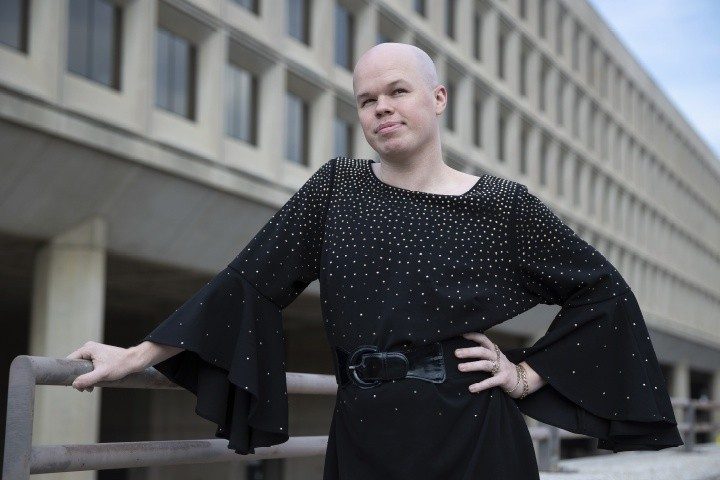
Sam Brinton, the “nonbinary” Biden administration nuclear official fired for allegedly stealing women’s luggage, was also instrumental in the passage of state bans on “conversion therapy” — but his own horror story of such therapy doesn’t stand up to scrutiny.
What’s more, conversion therapy proponents and opponents alike cautioned activists and legislators that Brinton’s tale was not to be trusted, but their warnings went unheeded.
“My colleagues and I warned lawmakers in California and Massachusetts, and the LGBT activist groups which were sponsoring him, about Sam Brinton’s ever-changing story about abuse he allegedly underwent in therapy because of his LGBT attractions,” Dr. Joseph Nicolosi, Jr., therapist and founder of the Reintegrative Therapy Association, told the Daily Signal. “But nobody cared, so Brinton’s testimony about his alleged experience played a key role in banning legitimate practices across the nation.”
“The red flags regarding Brinton were overwhelming and obvious to all who cared to see them,” wrote anti-conversion therapy activist Wayne Besen. “Unfortunately, some of America’s top LGBTQ+ activists and organizations were willfully blind to Brinton’s shortcomings.”
Brinton first became widely known via a 2010 YouTube interview in which he said that when he was 11, he told his parents he was homosexual, after which he was repeatedly physically abused by his father.
According to Besen (who refers to Brinton by his now-preferred pronouns they and them), “Brinton says that they were then sent to a cruel and sadistic Florida conversion therapist, who they saw for two or three years [Brinton’s timeline periodically changes depending on the media interview]. Brinton alleges this practitioner used aversion therapy, which included sessions where they were tortured with extreme heat, ice, and needles.”
Besen said he “had hoped to work with Brinton to expose the harm of conversion therapy,” but he first wanted to confirm his potential ally’s claims:
I excitedly reached out to Brinton, and they were oddly inaccessible, communicating indirectly through intermediary LGBTQ+ activists in the Boston area, where they were attending MIT. The reason for Brinton’s scarcity had to do with two simple questions I had asked them: “Who was your conversion therapist, and in which facility did the therapy occur?”
This basic inquiry was critically important for two reasons. First, to share Brinton’s story, we had to verify if it was true. Second, Brinton’s testimony involved a torture center where hideous abuses were presumably still occurring against children at least as young as 11. If such a place existed, there was a moral imperative to rapidly identify the abusive therapist and contact the authorities to stop the atrocities.
Why was Sam Brinton the only survivor of conversion therapy I’ve encountered since 1998 who refused to answer these questions? Not only had every other survivor provided this information willingly, but they were eager to fight back and shut down their own therapist or “ex-gay” minister. [Emphasis in original.]
Brinton later averred that it was “simply not an option” for him to reveal the name of his alleged therapist because trying “to dig deep into the memories of the time” could cause him to “revert to near suicidal tendencies.” Oddly, though, that didn’t stop him from recalling many other specific details about his supposed therapist’s office, such as that it featured “seven King James Bibles on a stack on the coffee table.”
Brinton’s story has changed in a variety of other ways over the years, from the age at which the therapy supposedly began (anywhere from 10 to over 20) to where it took place (Florida or some other state) to whether his counselor was a “religious therapist” or a “licensed psychotherapist.”
Despite all this, observed Besen, “in countless stories, not a single reporter from the world’s top publications pressed Brinton to name their counselor” or asked him any other probing questions.
Similarly, the Biden administration, eager to fulfill its LGBT quota, overlooked not only the inconsistencies in his allegations, but also the “gender-fluid” Brinton’s obvious psychological and sexual disorders.
“Some of us warned long ago about his lies and behavior before it was popular, but Brinton’s story was too convenient for the narrative,” said Nicolosi. “I doubt that the many states which have banned legitimate therapy will reverse course now that he’s been outed.”



